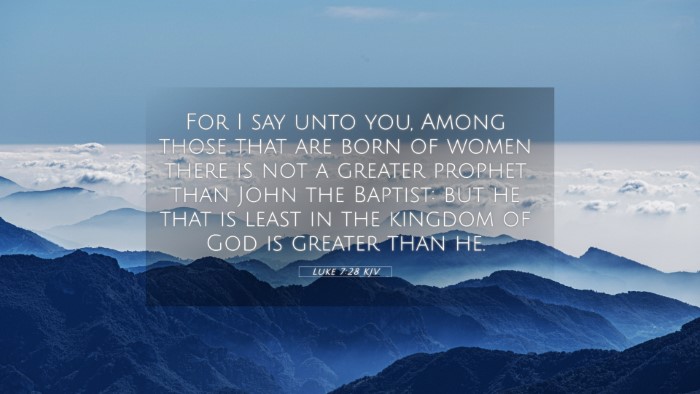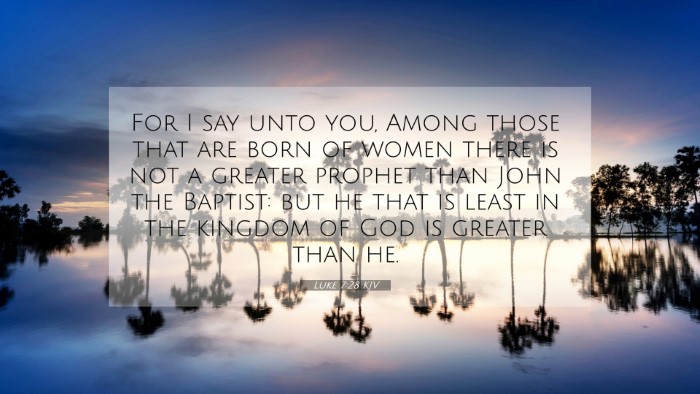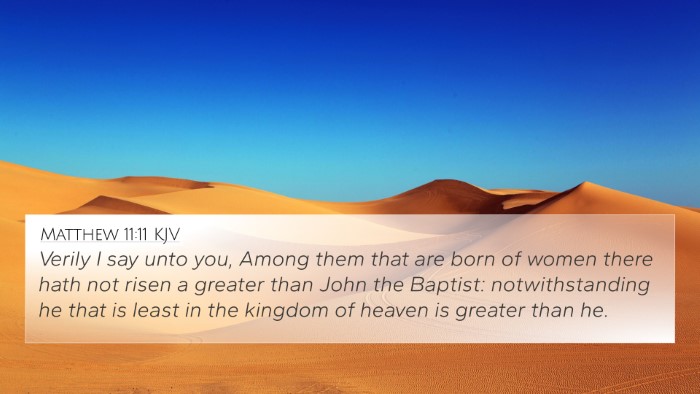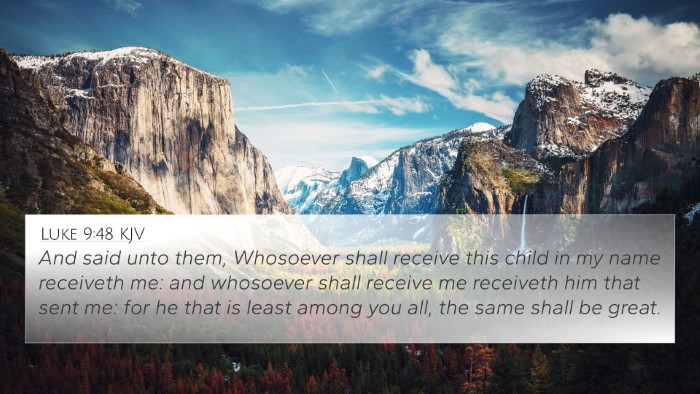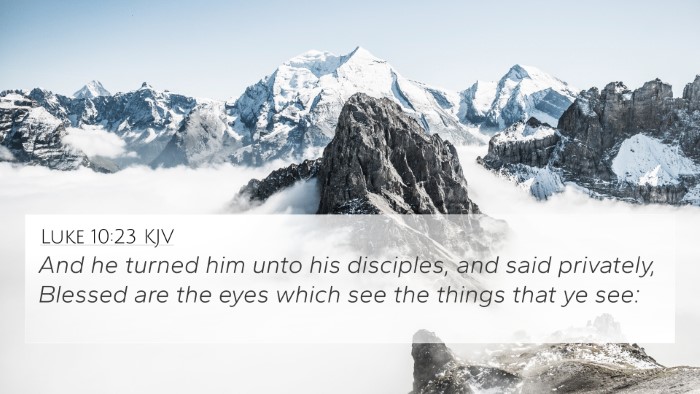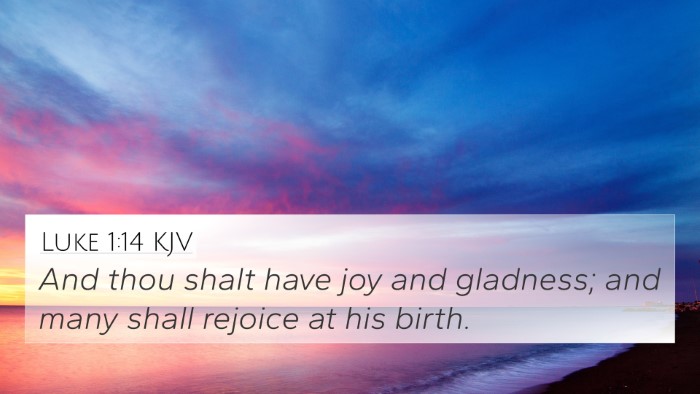Understanding Luke 7:28
Luke 7:28 states, "I tell you, among those born of women none is greater than John; yet the one who is least in the kingdom of God is greater than he." This profound declaration from Jesus highlights the unique position of John the Baptist while simultaneously reflecting on the transformative nature of the Kingdom of God.
Contextual Background
In the context of Luke 7, Jesus has been discussing John the Baptist and his significant role in heralding the coming of the Messiah. This verse serves as a culminating acknowledgment of John's greatness in comparison to others born of women, indicating both his prophetic stature and the significance of his mission.
Commentary Insights
-
Matthew Henry's Commentary:
Henry emphasizes that while John the Baptist is renowned as a greatest prophet, those who enter the Kingdom of God are afforded a greater privilege. The transition from the Old Covenant to the New Covenant illustrates how the coming of Christ elevates believers.
-
Albert Barnes' Notes:
Barnes interprets this verse as a clear indication that spiritual status in God’s Kingdom is determined not by earthly standards, but by one's relationship with Christ. The least in the Kingdom, referring to believers, possesses a greater spiritual stature than even the greatest of prophets, illustrating the revolutionary change brought about by Christ.
-
Adam Clarke's Commentary:
Clarke notes that this proclamation by Jesus reflects the superiority of grace over law. John, being faithful under the Law, still does not experience the fullness of grace that those in the New Covenant enjoy, marking a significant shift in spiritual experience and relationship with God.
Bible Cross References
- Matthew 11:11: Jesus reiterates that John is indeed a great prophet with esteemed stature in the eyes of God.
- Hebrews 11:32-34: Acknowledges various Old Testament figures but points toward the New Covenant’s prominence.
- Luke 3:16: Here, John himself acknowledges his role in relation to Jesus, indicating his own prophetic mission.
- Matthew 5:19: Discusses the distinction between those who follow the Law and the least in the Kingdom regarding righteousness.
- John 1:26-30: John the Baptist’s own witness about who he is in comparison to the one coming after him, Christ.
- Galatians 4:4-7: Highlights the transition from those under the law to those who are sons through Christ, which speaks to the elevation that the least in the Kingdom experiences.
- Philippians 3:20: Reminds believers that their citizenship is in heaven, again emphasizing the greater standing within the Kingdom of God.
- James 2:5: Affirms God's choice of the poor in the world being rich in faith, which correlates to the "least" being greater in God's eyes.
- 1 Peter 2:9: Describes believers as a chosen generation, royal priesthood, which parallels the concept of spiritual elevation within the Kingdom.
Thematic Connections
This discourse presents several thematic connections worth exploring:
- The transitional nature of the Kingdom of God from the law to grace.
- The elevation of common believers compared to great prophets.
- The role of faith and grace as determining factors in spiritual status.
The Importance of Cross-Referencing
Understanding Luke 7:28 deeply benefits from cross-referencing Biblical texts. These connections enhance one’s comprehension of how verses relate to each other, providing a more holistic view of scriptural themes.
Tools for Bible Cross-Referencing
Using a bible concordance or a bible cross-reference guide can help one identify additional connections.
Engaging in a cross-reference Bible study not only enriches the current verse analysis but also builds a broader understanding of Biblical narrative and theology.
Conclusion
Ultimately, Luke 7:28 serves as a powerful reminder of the radical inclusivity and transformative power of the Kingdom of God. The message that the least are elevated within God's realm should inspire believers to understand their inherent value and significance. Engaging with this verse through comprehensive cross-referencing and thematic connections deepens one’s spiritual journey and Biblical understanding.

